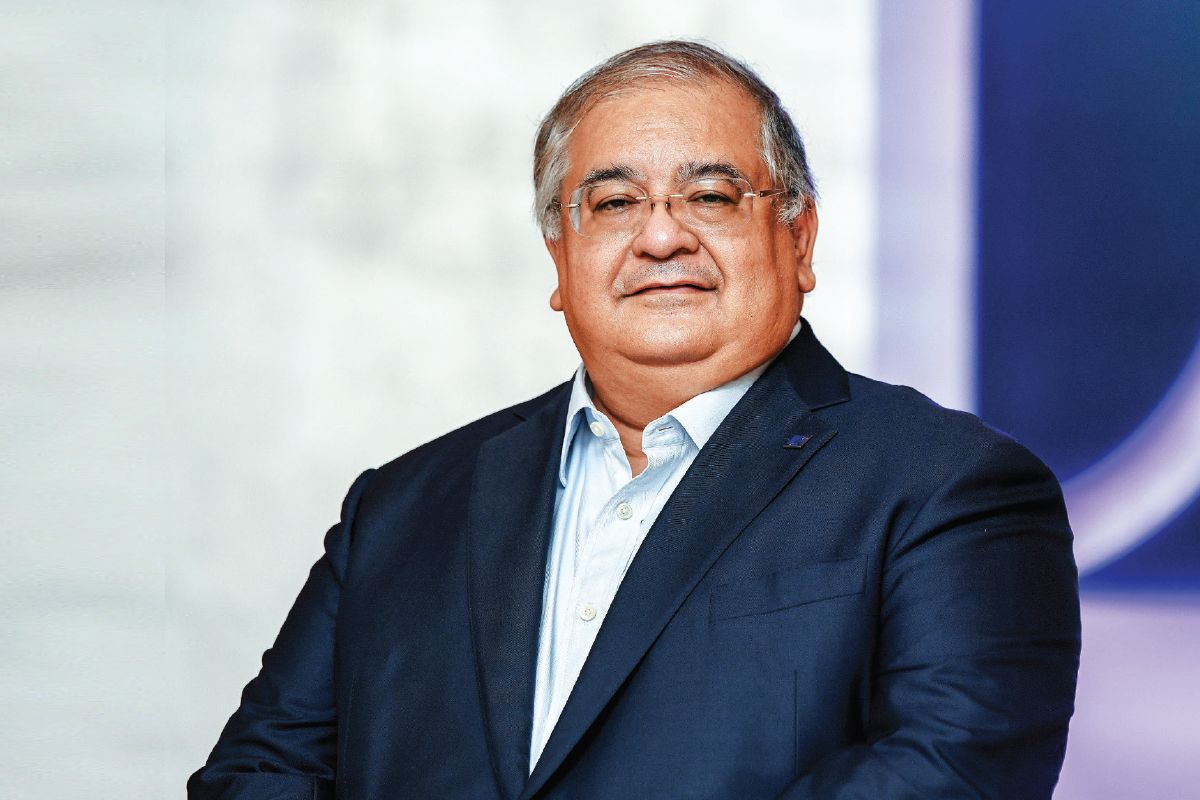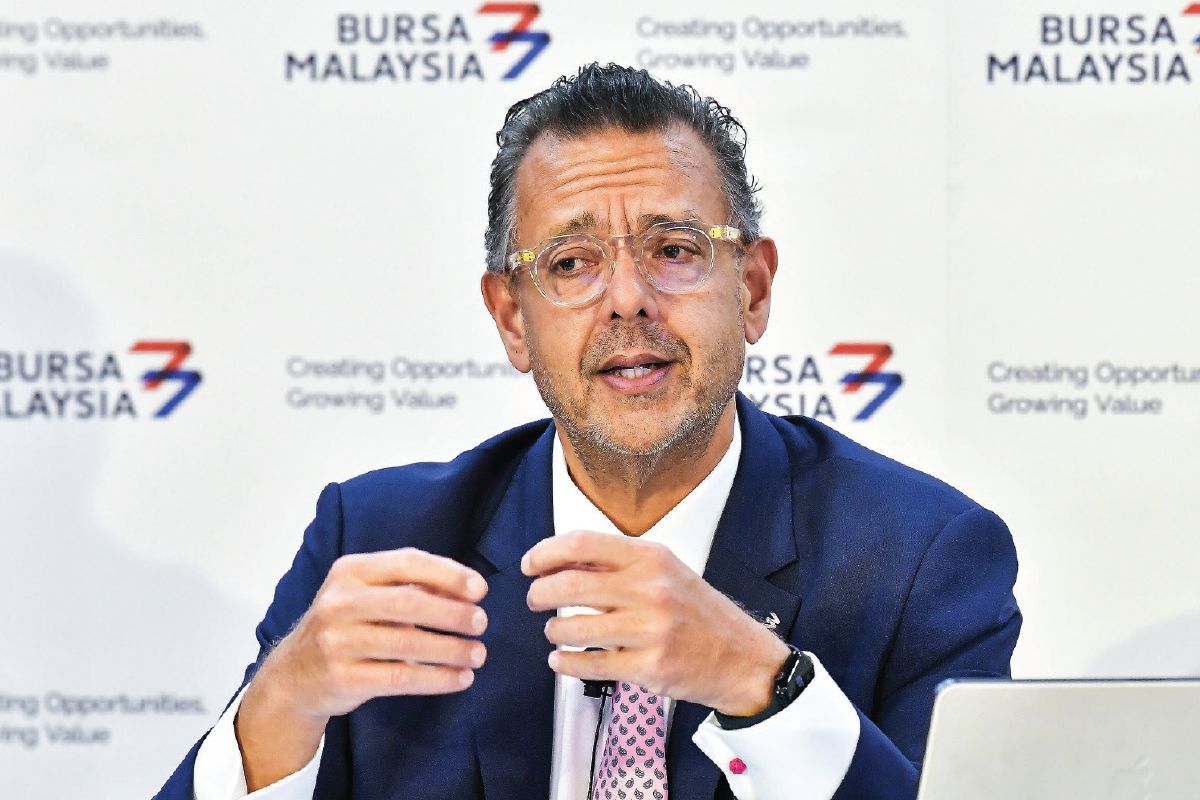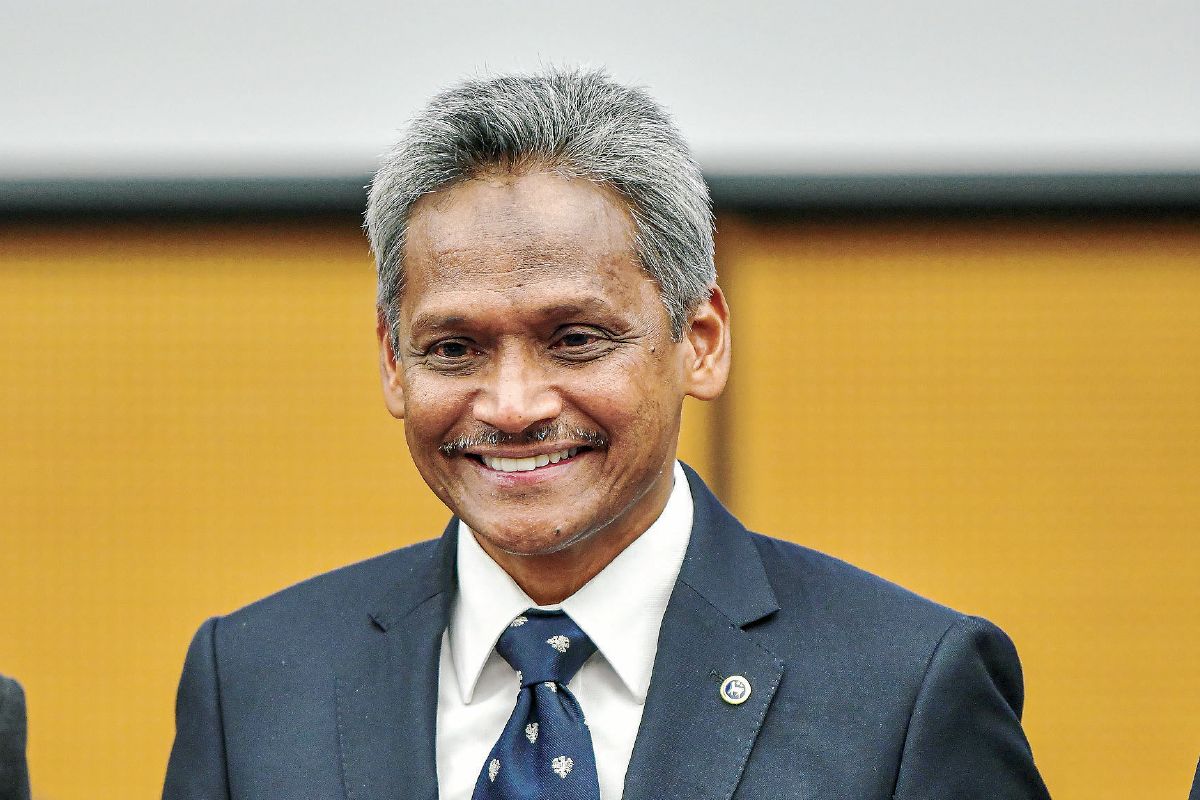This article first appeared in The Edge Malaysia Weekly on December 30, 2024 - January 12, 2025
In what many would describe as a good year, especially for the local bourse, the regulators played their part in ensuring that the capital markets operated in a fair and orderly manner
Datuk Muhamad Umar Swift
CEO of Bursa Malaysia Bhd
In April 2019, an international news publication referred to Bursa Malaysia (KL:BURSA) in an article as “The world’s worst major stock market” after it slipped 14% from its peak in May 2018. An analyst the publication spoke to had commented, “There is nothing to be positive about over the next 12 months.”
Datuk Muhamad Umar Swift was in the hot seat then, having assumed the position of CEO of the stock market operator about two months before.
It has taken about five years, but in 2024, Bursa Malaysia appeared to have found its groove as it hosted an impressive 55 initial public offerings (IPOs), beating an initial target of 42 offerings. To put things in perspective, in 2023, there were 32 IPOs and the 55 flotation exercises this year are the highest number since 2005.
Among the IPOs that stood out was that of 99 Speed Mart Retail Holdings Bhd (KL:99SMART) — the largest, raising RM2.3 billion on the Main Market in September. It made its founder and CEO Lee Thiam Wah a billionaire.
In March, fertility care company Alpha IVF Group Bhd (KL:ALPHA) raised RM466.5 million, making it the largest IPO on the bourse’s ACE Market.
The momentum seems likely to continue, with 50 IPOs slated to take place in 2025.
On Nov 11, in a rare case of two companises — Azam Jaya Bhd (KL:AZAMJAYA) and Mega Fortris Bhd (KL:MEGAFB) — listing on the same day, Umar observed: “This surge [in IPOs] reflects a thriving capital market with strong regulatory support and a diverse investor pool. Malaysia has experienced a bull run, making us the Asean exchange with the highest number of IPOs to date this year.”
The tide appears to have turned for Bursa Malaysia. As for Umar, he is said to be looking for greener pastures as the stock exchange operator confirmed a story by The Edge on Dec 23 that he will be leaving Bursa Malaysia soon. — By Jose Barrock
Datuk Seri Abdul Rasheed Ghaffour
Governor of Bank Negara Malaysia
A key challenge for Datuk Seri Abdul Rasheed Ghaffour, who became Bank Negara Malaysia governor in July 2023, was the persistent depreciation of the ringgit against the US dollar early this year. The ringgit, among Asia’s worst performing currencies at the time, hit a 26-year low of 4.80 against the greenback on Feb 20, spurring the central bank into action.
Bank Negara, as part of a coordinated move with the government to stimulate flows into the foreign exchange market, stepped up efforts to “encourage” government-linked companies and government-linked investment companies (GLICs), as well as investors and exporters, to bring back foreign investment income and convert it into ringgit.
The moral suasion sparked debate in the market — some felt that it could have unintended consequences, including potentially lower investment income and dividends from GLICs such as the Employees Provident Fund and Khazanah Nasional Bhd — but it yielded results.
Speaking to reporters a few months later, Abdul Rasheed noted that the coordinated measures had helped the local currency appreciate 1.6% against the US dollar between Feb 26 and May 15. Prior to the implementation on Feb 26, the ringgit had declined 3.9%, he said.
After the US Federal Reserve began its easing cycle in September, which narrowed interest rate differentials between the US and Malaysia, the ringgit’s fortunes improved further and it was, for a while, the world’s top-performing currency against the greenback. At the time of writing on Dec 16, the ringgit was trading at the 4.45 level.
Bank Negara was also in the news because of its close scrutiny of the Sarawak/Affin Bank Bhd (KL:AFFIN) deal, in which the state government sought to become the lender’s largest shareholder. Observers note that the central bank did not succumb to political pressure to hasten the deal, taking care to ensure it was comfortable with all aspects before greenlighting it in September, much later than the market had expected. Shortly after, Sarawak became the first state government to have a large stake in a bank.
In 2025, there will be close monitoring of whether Bank Negara makes any change to the overnight policy rate (OPR) as the US continues with its easing cycle — although at a potentially slower pace — and as the Malaysian government cuts back on blanket subsidies, which could impact prices and growth. The OPR has held steady at 3% since Abdul Rasheed took the helm. Next year (Jan 2 to Dec 31) is also when Bank Negara starts accepting applications for digital insurance/takaful licences. — By Adeline Paul Raj
Save by subscribing to us for your print and/or digital copy.
P/S: The Edge is also available on Apple's App Store and Android's Google Play.
- China suppliers mock tariffs with Nike, Lululemon deals on TikTok
- Yellen says sell-off in Treasuries shows US confidence loss, not dysfunction
- Reach Energy, Cahaya Mata, Able Global, Pestec, Bina Puri, Jentayu Sustainables
- Malaysia declares state funeral for Tun Abdullah Ahmad Badawi
- Nvidia to produce AI servers worth up to US$500b in US over four years
- Tariff shock awaits China after trade surplus hits $103 billion
- US steps up probes into pharmaceutical, chip imports, setting stage for tariffs
- Trump again accuses Zelenskiy of starting war as talks grind on
- Asian stocks set for cautious day as US trade probes sow more anxiety
- South Korea unveils US$23 billion support package for chips amid US tariff uncertainty




